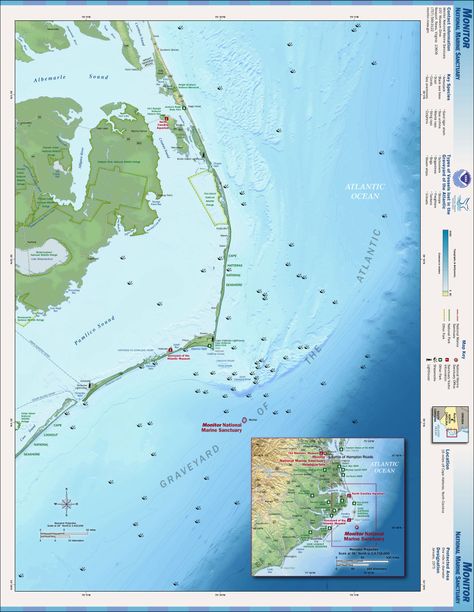
Outer Banks, North Carolina
General Info

| City | Nags Head, Kill Devil Hills, Kitty Hawk, Duck, Southern Shores, Manteo, Rodanthe, Avon, Buxton, Frisco, Hatteras |
|---|---|
| Area/Region | North Carolina |
| Country | United States |
| Website | https://www.outerbanks.org/ |
| Latitude | [object Object] |
| Longitude | [object Object] |
| Telephone | 1-877-629-4386 |
| Postal Code | 27927, 27949, 27948, 27959, 27954, 27968, 27915 |
| Location Name | Outer Banks |
| Alternate Name | OBX |
Overview
The island's rich history paints a canvas of timeless intrigue, it hosted daring pirate adventures and was the scene of the Wright Brothers' breakthrough aviation. The diverse and enveloping dialects weave fascinating stories of the disappearance of the High Tider language, providing a glimpse into the unique heritage of the Outer Banks. Watch wild Corolla mustangs graze under a golden sunrise or enjoy the salty air as you drive past the gnarled crowns of live oaks. From surf fishing in front of a spectacular sunset to testing your strength against the roaring white ridges, a wide range of water sports offer many ways to challenge and enjoy the mighty Atlantic Ocean.
For those seeking tranquility, the island chain of Cape Hatteras National Seashore offers a peaceful retreat. The piercing beam of the Hatteras Lighthouse, America's tallest, stands like a silent sentinel over the restless ocean, a beacon of resilience amid nature's storms.
Whether you're looking for adventure or want to relax in the lap of nature, the Outer Banks promises an unforgettable experience with its rugged beauty and wild heart. As in the series of the same name, you can understand that true wealth, like treasure, is in the journey.
History
Piracy found fertile ground on the Outer Banks, giving rise to the nickname "Graveyard of the Atlantic" in reference to the many shipwrecks off the coast. The most famous pirate, Blackbeard, died here in 1718 while fighting the British naval forces.
During the civil war, the area played a decisive role. Confederate forces attempted to control the strategic waterways, but Union forces captured most of the key fortifications, controlling the area for most of the war.
The Outer Banks also recognized one of humanity's greatest achievements, the Wright Brothers' first flight in 1903. The steady winds, soft sandy landing surfaces, and isolation from distractions made it an ideal location for their experiments. In recent years, the Outer Banks has become a popular tourist destination, attracting millions of people each year. Despite such changes, it retains much of its original charm, preserving its natural beauty and historical heritage, making it a living tribute to the diverse past of this unique coastal region.
Background
In addition to being a beautiful summer vacation backdrop, The Outer Banks is a dynamic setting that enhances the show's overall plot and character development. Home to timeless lighthouses and rustic wooden piers, it effortlessly embodies the protagonists, the Pogues, and their humble, seafaring lifestyle, while also symbolizing their enigmatic escapades. The fine sandy beaches were the scene of the Kook's life, with lavish summer parties and passionate matches of beach volleyball reflecting their privileged existence. But local history, maritime history and relentless coastal storms give the series structure and perspective. The allusion to a stranded royal merchant ship and its lost gold captivates the audience, drawing them into an exciting treasure hunt in a changing landscape. The Outer Banks, with its tales of shipwrecks and strife, become a catalyst for adventure and strife, intricately woven into the fabric of the plot.
Furthermore, the dichotomy between the Pogues and the Kooks, underscored by geographic and socio-economic differences, shows the island's contrasting worlds. From small, run-down swamp bungalows to breathtaking Figure Eight mansions, the place tells its own story and maintains its class divide. The "Cut", a narrow stretch of water that separates the rich from the poor, literally and figuratively, further illustrates the social and economic divide.
As the series progresses, the Outer Banks becomes more than just a place; assumes the role of an omnipresent character who determines the course of the story. With her mystery and charm, she embodies the spirit of rebellion, resilience, friendship and enchantment, becoming as integral a part of the performance as the characters themselves.